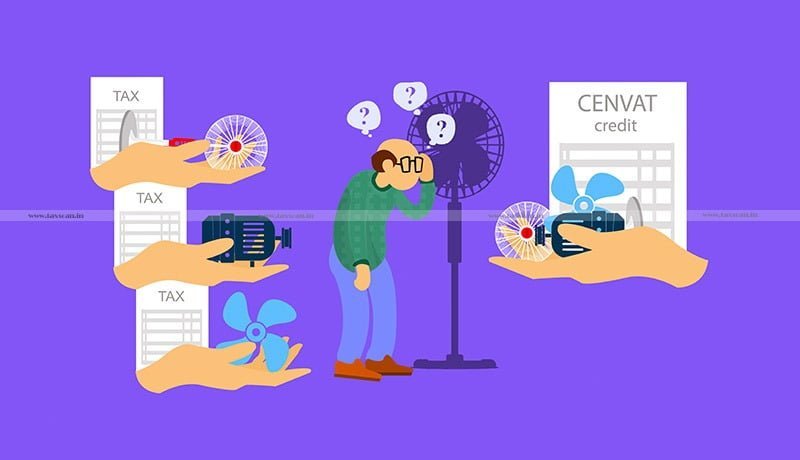Cenvat Credit not allowable on Capital Goods for which full Depreciation is allowed by Income Tax Dept: CESTAT confirms Order denying Credit [Read Order]

Cenvat Credit – Income Tax Dept – CESTAT – Taxscan
Cenvat Credit – Income Tax Dept – CESTAT – Taxscan
The Customs, Excise, and Service Tax Appellate Tribunal ( CESTAT ), Delhi bench has held that the cenvat credit is not allowable on the capital goods for which the Company has already availed full amount of depreciation under the Income Tax Act, 1961.
The appellant-Company claimed 100% Cenvat Credit of capital goods on 31.07.2014. however, the request was rejected by the central excise department alleging that the appellant has taken the Cenvat credit of Rs. 7,45,626/- on the capital goods which were capitalized in the balance sheet at full invoice value inclusive of Excise duty and have also claimed depreciation thereupon. Accordingly, the department issued an order wherein the Cenvat credit was disallowed and to be recovered along with interest and proportionate penalty.
Considering an appeal filed by the Company, the Tribunal comprising Judicial Member Rachna Gupta held that rule 4(4) of CENVAT Credit Rules, 2004 do not permit CENVAT Credit in respect of part of the value of capital which represents the duty of amount on such capital goods or which the manufacturer or producer of output service claims as depreciation under section 32 of the Income Tax Act, 1961.
Considering the facts in deeply, the Judicial Member held that there is definite violation of said Rule by the appellant. The adjustment in the balance sheet of 2015-16 cannot be considered as reversion of the depreciation claimed in the balance sheet of theyear 2013-14 and 2014-15.
“Accordingly, I do not find any infirmity in the findings of the Commissioner (Appeals) where it has been held that the adjudicating authority has grossly erred in interpreting the provisions of Rule 4(4) of CENVAT Credit Rules, 2004. Once the full depreciation was claimed, the respondent could not claim availment of cenvat credit on capital goods. Corrective measures are taken by the appellant but in a subsequent financial year definitely does not make good irregular availment of CENVAT Credit during the previous year. No doubt the objective /idea of Rule 4(4) of CENVAT Credit Rules, 2004 is to prevent the double benefit but as already discussed above, the appellant has failed to produce any evidence that double benefit which admittedly was claimed by him, as to actually been reversed for the relevant financial year,” the Tribunal said.
To Read the full text of the Order CLICK HERE
Support our journalism by subscribing to Taxscan AdFree. We welcome your comments at info@taxscan.in


